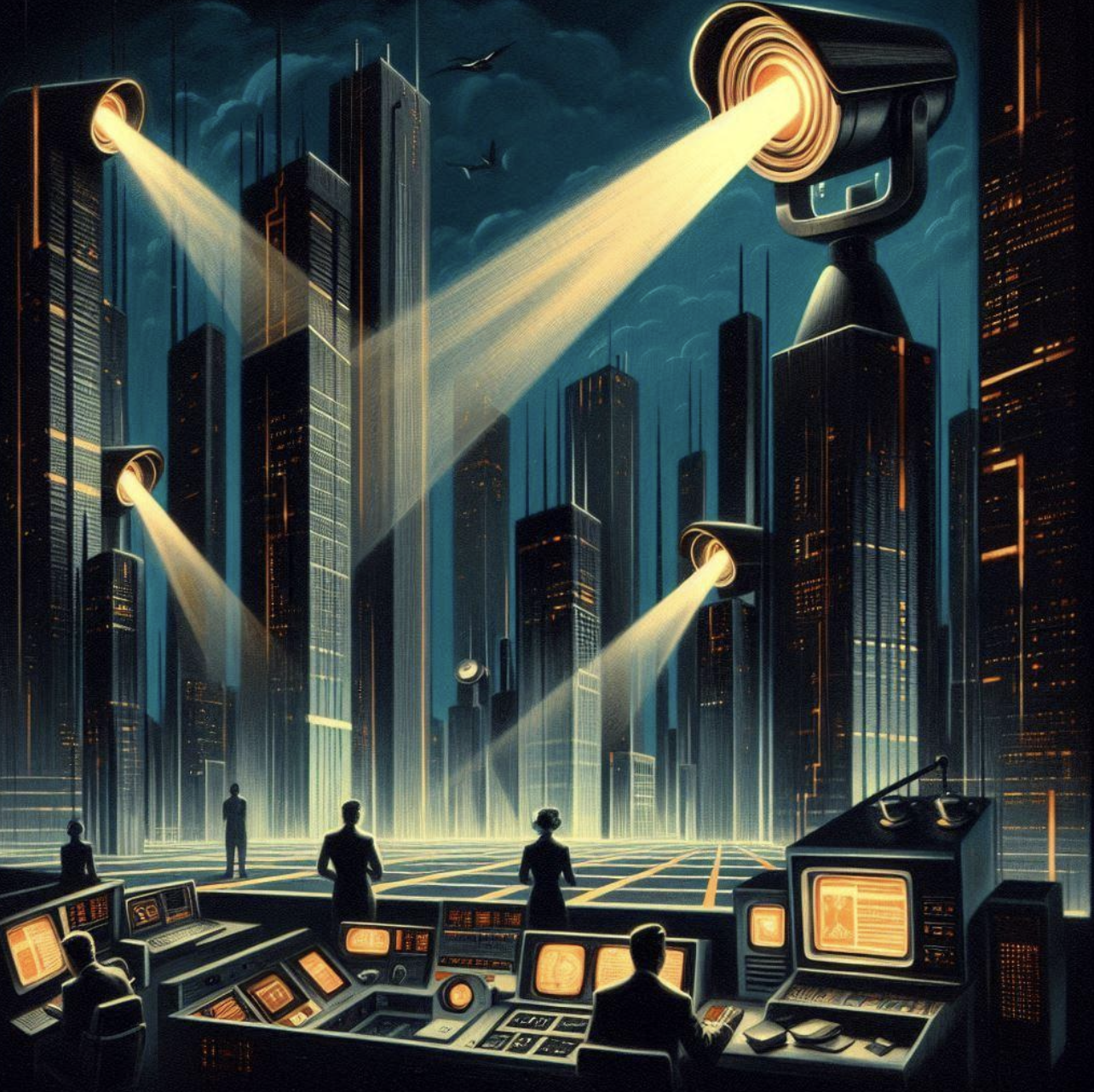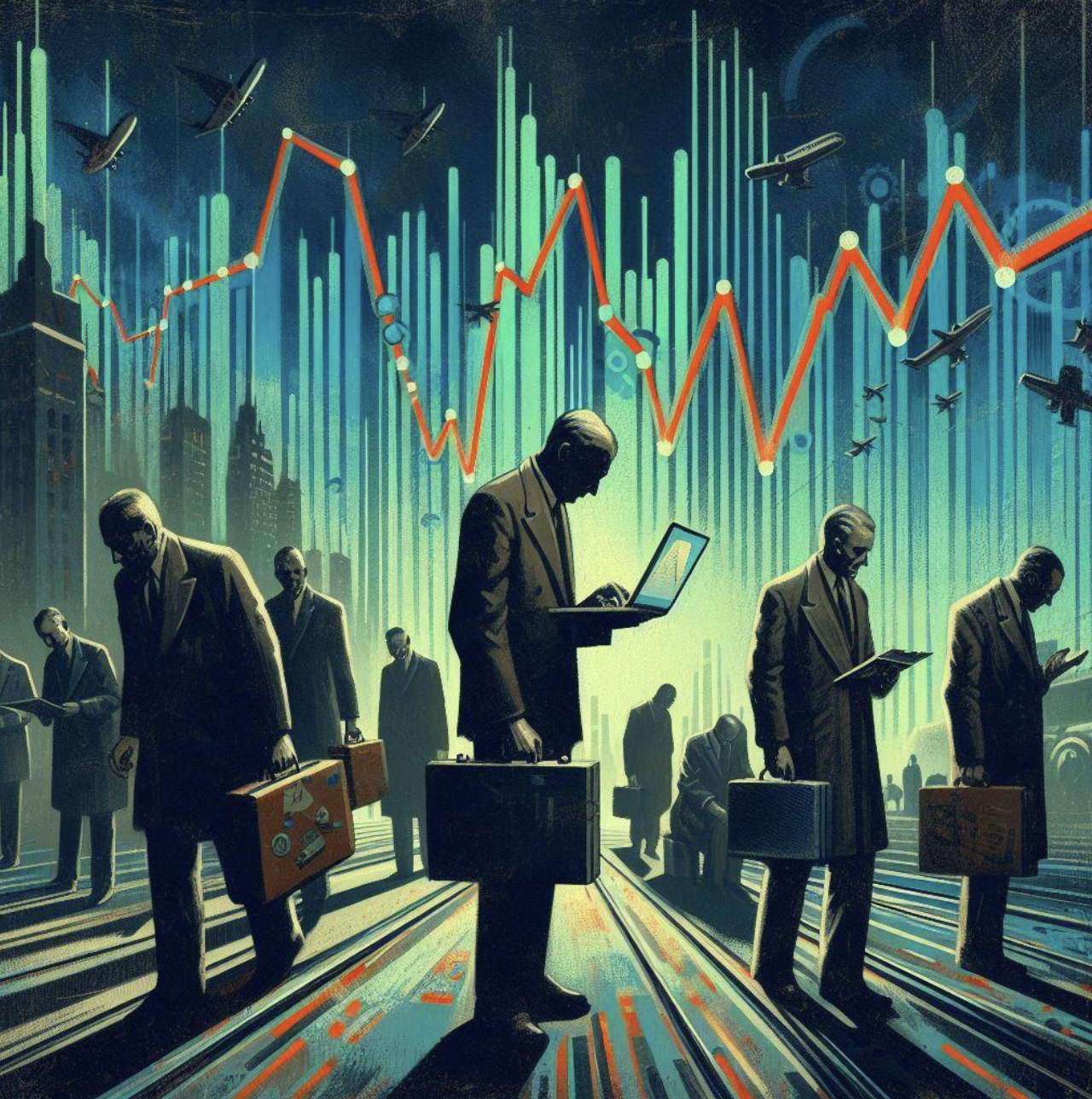AI Dystopia: Arguments Against Artificial Intelligence
written by Tamás Fodor
Stephen Hawking: AI will be ‘either best or worst thing’ for humanity
What risks does the development of artificial intelligence pose? The increasingly rapid spread of AI raises fundamental questions about the safety of our society, the authenticity of information, and the future of our work. As we examine the dark sides of this technological revolution, it is essential to consider the potential dangers that may emerge as unexpected consequences of this development. In this article, I have compiled critical expert opinions and warning signals.
This is the second part of my two-part series, in which I present the downsides of artificial intelligence. In the first part, I outlined the positive impacts and possibilities of AI – now it’s time to face the potential dangers and challenges, which, if ignored, could have serious consequences for humanity.
As artificial intelligence technologies continue to expand their influence across society, a growing wave of skepticism has emerged alongside the initial enthusiasm. This skepticism spans from academic circles to workplaces, from creative industries to everyday users, reflecting a nuanced understanding that AI’s transformative potential carries significant concerns worth examining. The narrative around AI has shifted noticeably, with public discourse increasingly acknowledging limitations, risks, and ethical implications that demand critical attention.
The landscape of AI skepticism encompasses diverse concerns ranging from misinformation and bias to system failures, cybersecurity vulnerabilities, employment displacement, privacy invasion, and loss of control. These concerns are not merely theoretical but increasingly manifest in personal experiences and institutional challenges. They reflect legitimate recognition that technological capabilities are outpacing our social, ethical, and regulatory frameworks for managing their impacts.
Moving forward, productive engagement with AI requires neither uncritical acceptance nor categorical rejection but rather informed skepticism coupled with proactive development of individual and collective capabilities. Critical digital literacy and thoughtful consideration of how these technologies should integrate with human activities represent essential responses to the AI revolution. By fostering these capabilities, we can work toward technological development that enhances rather than diminishes human potential and social well-being.
Core Areas of AI Skepticism and Concern
Misinformation and Information Integrity
One of the most persistent concerns about artificial intelligence centers on its potential to generate and amplify misinformation. Critics worry about AI’s capacity to produce convincing but false content at scale, potentially flooding information ecosystems with synthetic material that undermines truth. The ability of generative models to create persuasive text, images, and eventually video raises fundamental questions about information integrity in digital spaces.
In academic publishing specifically, AI presents unique challenges to research integrity. Industry professionals have highlighted how “AI-driven technologies contribute to the exponential growth of papermills” [https://www.hepi.ac.uk/2024/04/26/how-ai-impacts-on-academic-publishing/] which produce fraudulent research papers. This exploitation of system vulnerabilities threatens the foundation of scholarly knowledge production. The potential for AI to enable more sophisticated forms of academic misconduct constitutes a significant threat to research integrity that publishers and institutions must confront.

Deepfakes and Manipulation
The emergence of AI-generated deepfakes represents a particularly concerning development in the misinformation landscape. These sophisticated synthetic media can portray individuals saying or doing things they never did, creating powerful tools for deception and manipulation. As the technology becomes more accessible and the results more convincing, the potential for political manipulation, reputation damage, and social harm increases dramatically.
The manipulation potential extends beyond visual and audio content to include text-based influence operations. AI systems can generate personalized persuasive content at scale, potentially enabling more effective targeted manipulation campaigns. This capability raises concerns about election interference, radicalization, and other forms of harmful influence that could undermine democratic processes and social cohesion.

Bias, Stereotyping, and Algorithmic Fairness
AI systems inevitably reflect the biases present in their training data, leading to concerns about perpetuating social inequities. Critics ask whether AI will “perpetuate racist, sexist and cultural stereotypes”, recognizing that technologies trained on existing cultural materials will reproduce problematic patterns. This concern acknowledges that AI systems are not neutral tools but rather sociocultural artifacts that can reinforce existing power structures [https://waccglobal.org/confessions-of-an-ai-sceptic/].
The issue of bias extends beyond simple reproduction to include amplification of problematic patterns. Critics note that “AI perpetuates, amplifies and launders bias, with consequent unequal impact”. This laundering effect occurs when biased outcomes gain perceived legitimacy through their association with seemingly objective technological systems. The black-box nature of many AI systems further complicates this problem by obscuring the mechanisms that produce these biased results.
System Failures and Accidents
As AI systems become increasingly integrated into critical infrastructure and decision-making processes, the potential consequences of system failures grow more severe. Unlike traditional software, AI systems can fail in unpredictable ways that may be difficult to diagnose or reproduce. These characteristics create unique challenges for ensuring system reliability and safety, particularly in high-stakes applications like healthcare, transportation, and financial systems.
The potential for cascading failures represents a particularly concerning risk. When multiple AI systems interact or when AI controls critical systems, small errors can potentially amplify and propagate in ways that lead to large-scale failures. These emergent behaviors are difficult to predict through traditional testing methods, creating fundamental challenges for system validation and safety assurance.
Cybersecurity Vulnerabilities
AI introduces novel security vulnerabilities that extend beyond traditional cybersecurity concerns. Adversarial attacks can manipulate AI systems through subtly modified inputs that humans wouldn’t notice but that cause the system to make significant errors. These vulnerabilities create new attack vectors for malicious actors seeking to compromise AI-dependent systems.
Additionally, AI systems themselves can become tools for enhancing cyberattacks. Machine learning can be used to identify vulnerabilities, automate attack processes, and evade detection systems. This dual-use nature of AI technology means that security measures must evolve alongside advancements in AI capabilities to maintain protective parity.
Employment Displacement and Labor Concerns

Fear of job displacement stands as one of the most widespread concerns about AI advancement. Workers across various sectors express anxiety about their future employability as AI capabilities expand. A PwC survey revealed that “almost a third of respondents said they were worried about the prospect of their role being replaced by technology in three years”. This anxiety affects not just routine jobs but increasingly extends to knowledge work and creative fields previously considered safe from automation. [https://www.pwc.com/gx/en/issues/workforce/hopes-and-fears-2022.html]
Creative professionals in particular face uncertainty about how AI will transform their industries. One copywriter expressed concern by saying, “We’re all just hoping that our clients will recognize [our] value, and choose the authenticity of [a human] over the price and convenience of AI tools”. This sentiment captures the existential worry that human creativity might be devalued in a marketplace saturated with AI-generated content. [https://www.bbc.com/worklife/article/20230418-ai-anxiety-artificial-intelligence-replac
e-jobs]
Loss of Control
A fundamental concern about advanced AI systems involves the potential loss of human control over increasingly autonomous technologies. As systems become more complex and operate at scales and speeds beyond human comprehension, ensuring meaningful human oversight becomes increasingly challenging. This “control problem” encompasses both immediate concerns about system alignment with human intentions and longer-term questions about maintaining strategic control over increasingly capable systems.
The delegation of decision-making authority to AI systems raises questions about accountability and autonomy. When systems make consequential decisions affecting human lives, determining responsibility for negative outcomes becomes complicated. This diffusion of accountability creates challenges for governance frameworks and raises profound questions about human agency in increasingly automated environments.
Psychological Dimensions of AI Skepticism
AI Anxiety as an Emerging Phenomenon
The rapid advancement of AI technologies has given rise to a distinct psychological response termed “AI anxiety. ” Research conducted by Calm (meditation app) found that “nearly 1 in 3 adults (29%) are feeling anxious about AI, and 18% characterized their feelings as fear or dread”. This anxiety represents a complex emotional response to technological change that combines uncertainty about personal impacts with broader concerns about societal transformation.[https://www.sas.com/en_us/insights/articles/analytics/ai-anxiety-calm-in-the-face-of-change.html#:~:text=%E2%80%9CAccording%20to%20a%20new%20study,of%20work%20and%20human%20creativity.%E2%80%9D]
Impact on Cognitive Autonomy and Creativity
Beyond practical concerns about employment or privacy, AI skepticism includes deeper worries about human cognitive development and creativity. Some skeptics question whether AI will “seem ‘smarter’ only because we will cease to research, analyze, and create ourselves”. This concern recognizes that technological dependencies can atrophy skills and capabilities, potentially diminishing human cognitive autonomy.
Content creators express particular concern about AI’s impact on authentic expression. Reddit discussions reveal strong negative reactions to AI-generated content, with users describing such material as “meaningless articles” and “trash that’s flooding google searches”. These responses reflect anxiety about distinguishing genuine human expression from synthetic content and preserving the value of authentic creative work. [https://waccglobal.org/confessions-of-an-ai-sceptic/]
Link to AI Utopia

